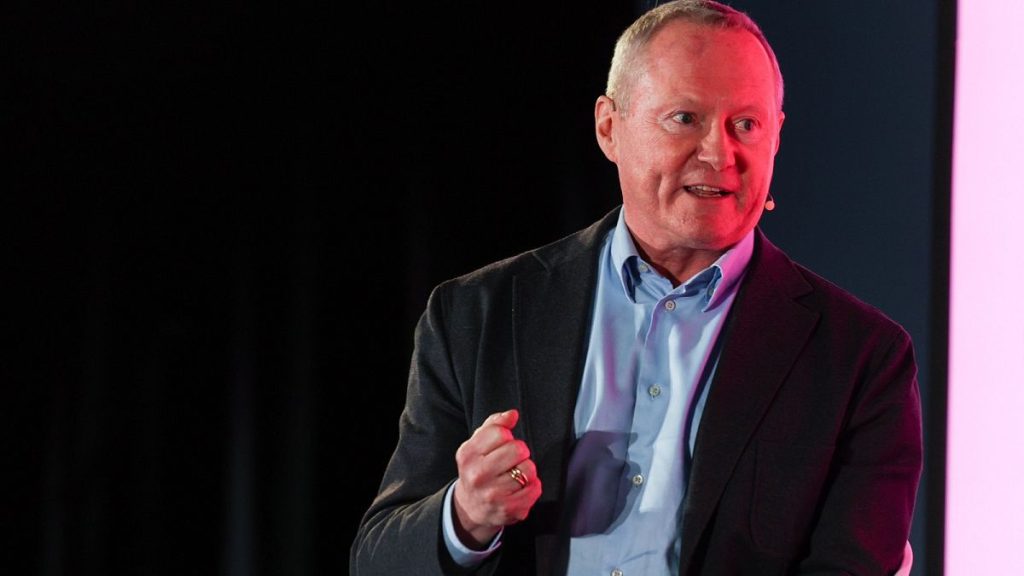In a recent address at the Web Summit in Lisbon, Michael O’Flaherty, the new Commissioner for Human Rights at the Council of Europe, emphasized the critical need to support Ukraine against the backdrop of the ongoing Russian invasion. He warned that failing to stand by Ukraine would represent an “existential loss” for Europe, highlighting the urgency of the situation. O’Flaherty’s focus on Ukraine reflects the broader human rights challenges currently facing Europe, which include rising antisemitism, Islamophobia, hate speech, and tensions derived from conflicts on the continent’s eastern front. The significance of Ukraine has been underscored at the summit over the years, with notable figures such as Olena Zelenska advocating for tech industry cooperation to help mitigate violence. This year, Yulia Navalnaya, the widow of Russian opposition leader Alexei Navalny, also highlighted the importance of online dissent in combatting growing authoritarianism.
O’Flaherty discussed the dual aspects of technology’s influence on human rights—a potential for positive change and a source of risk. He acknowledged that artificial intelligence (AI) could dramatically improve various aspects of life, including health care and environmental sustainability. However, he also pointed out the deep risks associated with its implementation, such as inherent discrimination, the spread of disinformation, and ethical quandaries in the justice sector. He underlined the need for proactive measures to manage these risks, asserting that states must uphold their human rights commitments in both digital and non-digital contexts. This set of commitments should form the basis for robust regulation and governance in the era of increasing technological complexity.
Regulatory frameworks like the EU AI Act, which went into effect recently, offer foundational guidance for protecting rights in the context of AI. However, O’Flaherty cautioned that it is still too early to evaluate its effectiveness. He pointed to the Council of Europe’s own framework convention on artificial intelligence as a pioneering treaty designed to protect human rights in the face of rapid technological advancement. This treaty is legally binding and aims to hold countries accountable for ensuring that human rights are not compromised through technological misuse, creating a stronger global standard than the EU’s legislation alone.
Despite these regulatory advances, O’Flaherty stressed the necessity for better collaboration between the tech sector and human rights advocates. At the tech-focused Web Summit, he noted the abundance of goodwill among those present, highlighting a shared desire to create a better future. However, he called for a common language to be developed between the two spheres, advocating for the inclusion of civil society voices in discussions surrounding technology’s role in shaping human rights. O’Flaherty believes that bringing civil society into these conversations could facilitate positive change and ensure accountability in addressing human rights violations.
In the context of the ongoing war in Ukraine, O’Flaherty articulated the urgent need for justice in response to heinous crimes committed during the conflict. He recounted his visit to Bucha, where he heard firsthand testimonies of the atrocities that took place. He advocates for criminal accountability for these acts, arguing that justice is crucial not only for the victims but also for preventing future crimes by reinforcing the sentiment of “never again.” Through a robust justice mechanism, societies can work towards reconciliation and a future where such violations are less likely to recur, thereby strengthening the human rights landscape in the region.
O’Flaherty’s remarks at the Web Summit illuminate the complex interplay between technology, human rights, and the geopolitical realities of the contemporary world. His plea for a concerted effort to support Ukraine, regulate AI responsibly, and forge connections between civil society and tech industries serves as a roadmap for navigating these challenges. By prioritizing human rights in the age of digital transformation, O’Flaherty aims not just to address existing issues but to build a more resilient foundation for the future of Europe and beyond. The unfolding events in Ukraine serve as a stark reminder of the importance of those efforts, emphasizing that the stakes are larger than ever.














